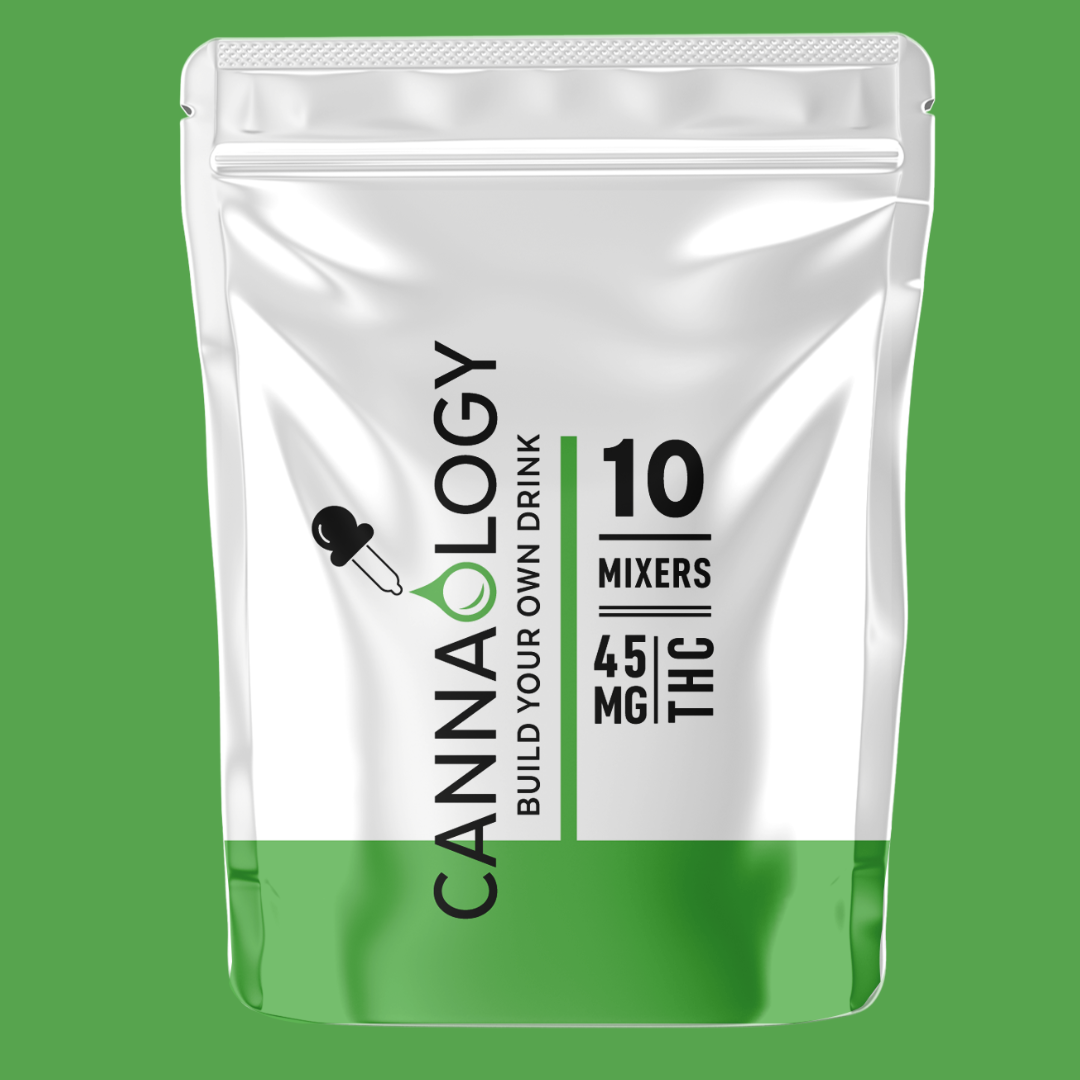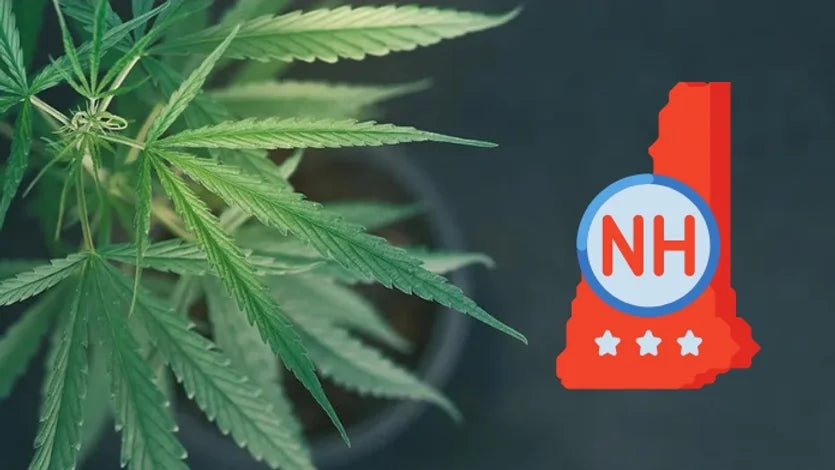The removal highlights a growing division within the GOP over how to address the ever-expanding number of legal state cannabis markets nationwide.

The Republican Party is at a pivotal crossroads this Election year. With both parties struggling to create an identity this election season, the Grand Ole Party is facing an existential crisis over what it stands for, particularly concerning specific "hot button" issues.
One of the most polarizing and divisive topics currently plaguing Republican lawmakers is what to do with cannabis (and hemp, to a lesser degree) now that over half the country resides in a state where adult-use cannabis is a legal and regulated economic marketplace.
Not surprisingly, a significant portion of GOP lawmakers oppose just about any marijuana legalization, citing the plant’s federal status as a Schedule 1 narcotic on the Controlled Substances List as the moral and legal basis for their vehement opposition.
However, as more and more states are coming online with some form of medical cannabis or adult-use marijuana program, many Republicans are shedding their party’s last-century mentality and embracing the economic, health, and societal power of the cannabis sativa plant, throwing their political support behind those initiatives.
Of particular interest to many cannabis advocates and stakeholders is the persistent effort by congressional lawmakers from both sides of the aisle to “fix” the financial and banking problems still limiting the economic stability and viability of thousands of cannabis-based businesses.
Because marijuana is still a Schedule 1 drug, a status that could change any day with the U.S. Drug Enforcement Agency (DEA) contemplating rescheduling the plant to a Schedule 3 narcotic, a substantial portion of banking institutions do not allow cannabis companies to open accounts with them, fearing criminal prosecution by the federal government.
This economic conflict has forced many cannabis companies to operate on an exclusive cash basis, leading to an increased number of robberies and other criminal acts against the exposed organizations.
To address the urgent crisis, congressional leaders ranging from Senate Majority Leader Chuck Schumer to high-profile Republicans have attempted to pass legislation to either ease the restrictions facing cannabis-based businesses or provide bills like the Secure and Fair Enforcement (SAFE) Banking Act to remove the institutional barriers confronting the legal marijuana industry.
Each time, however, dissenting voices from other, more conservative GOP corners of Congress have quashed the legislation, maintaining an uneasy and unpredictable status quo for thousands of hard-working, law-abiding cannabis entrepreneurs nationwide.
A prime example of this political game of “Whack-A-Mole” played out last week as House lawmakers worked to pass the financial services and general government bill, which provides annual funding for the Treasury Department and federal payments for the District of Columbia, the Securities and Exchange Commission, and other federal agencies.
According to numerous media outlets, GOP lawmakers in the U.S. House of Representatives struck specific legislative provisions last week to protect banks that serve cannabis businesses from the Treasury funding bill after a few loud protestations from other Republicans concerning their inclusion in the measure.
The provisions in question would have prevented federal funds from being used to “penalize a financial institution solely because the institution provides financial services” to businesses involved in the hemp and state-legal cannabis industries.
According to House Rep. Dave Joyce (R-OH), the co-chair of the Congressional Cannabis Caucus and the chair of the House subcommittee responsible for drafting the funding bill, committee leaders removed the cannabis banking language from the bill after some of his fellow GOP lawmakers “took issue” with the proposed measure.
Earlier this month, during a subcommittee markup hearing for the legislation, Joyce told The Hill, “With over 40 states enacting some degree of cannabis reform, it is past time that the federal government respect the will of these states. This issue is especially pertinent as cannabis regulations have been proven to increase public safety and quality of life for Americans. My Financial Services and General Government bill included provisions to do just that and ensure states’ rights to make the best choices for their unique constituencies are protected.”
"With over 40 states enacting some degree of cannabis reform, it is past time that the federal government respect the will of these states. This issue is especially pertinent as cannabis regulations have been proven to increase public safety and quality of life for Americans. My Financial Services and General Government bill included provisions to do just that and ensure states’ rights to make the best choices for their unique constituencies are protected."
- U.S. House Rep. Dave Joyce (R-OH)
During that same markup hearing, Rep. Chuck Edwards (R-NC) went after the marijuana banking protections in the funding bill, referring to the legislation as “affirmative authorization disguised as a limitation,” adding that cannabis is still illegal under federal law.
“Our country has never allowed a federally illegal activity to be banked, and it’s important to note that, despite some states trying to legalize marijuana, still a Schedule I drug, marijuana is still illegal,” Edwards told his fellow lawmakers on the subcommittee. “And I believe that it should remain illegal. It’s dangerous, and more and more evidence is being found that it causes irreparable harm, particularly to younger minds.”
"Our country has never allowed a federally illegal activity to be banked, and it’s important to note that, despite some states trying to legalize marijuana, still a Schedule I drug, marijuana is still illegal. And I believe that it should remain illegal. It’s dangerous, and more and more evidence is being found that it causes irreparable harm, particularly to younger minds."
- U.S. House Rep. Chuck Edwards (R-NC)
Despite the setback, Joyce voiced his intentions to continue trying to ease banking restrictions on marijuana businesses via legislation, even if it places him at odds with his fellow Republican lawmakers.
“While the provisions maintain strong bipartisan support, as Chairman, I will work to alleviate their concerns but will not delay my responsibility to fund the government and, therefore, my legislation in the meantime. However, let me be clear: I will not abandon this effort in Congress and will continue to work with my colleagues in good faith to ensure they become law,” Joyce said last Thursday.
"While the provisions maintain strong bipartisan support, as Chairman, I will work to alleviate their concerns but will not delay my responsibility to fund the government and, therefore, my legislation in the meantime. However, let me be clear: I will not abandon this effort in Congress and will continue to work with my colleagues in good faith to ensure they become law."
- U.S. House Rep. Dave Joyce (R-OH)
The cannabis conundrum is a genuinely perplexing situation for the Republican Party. With poll after poll indicating a significant majority of Americans from both major political parties support legalized recreational cannabis, staunchly entrenched conservative mentalities concerning the plant’s legal status could create a seismic schism in the GOP, one that could ultimately impact the next occupant of the White House.

























